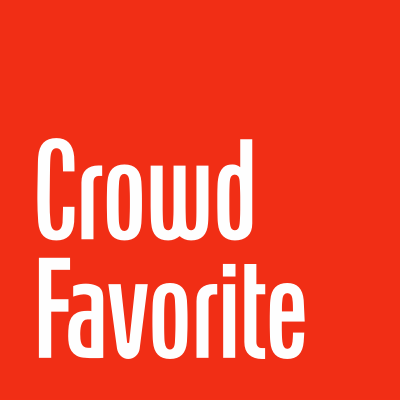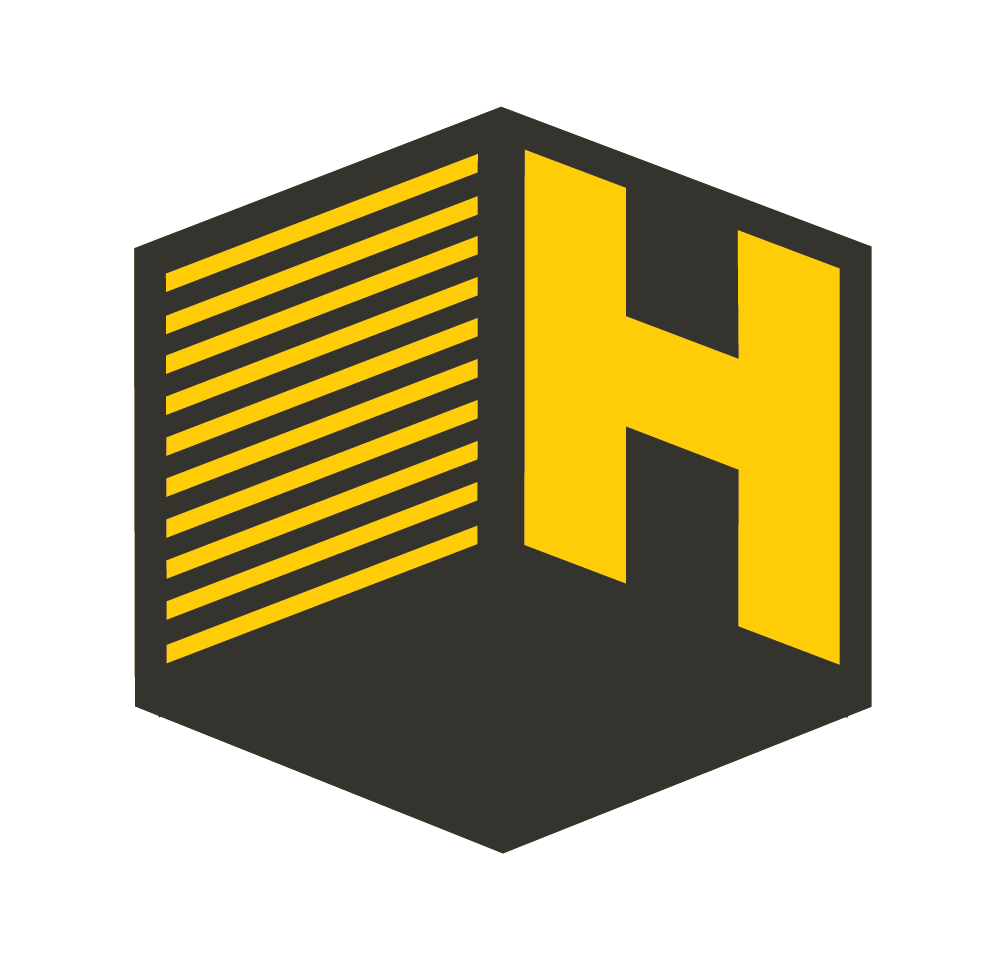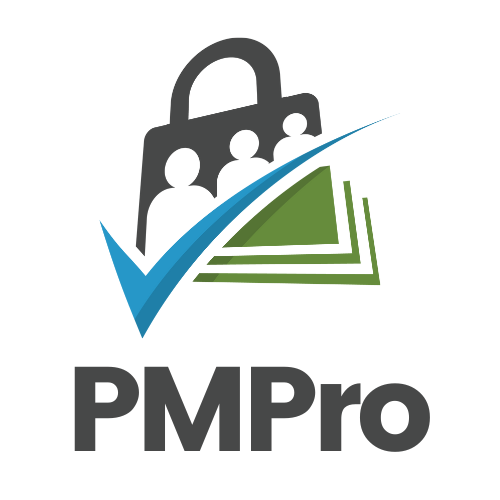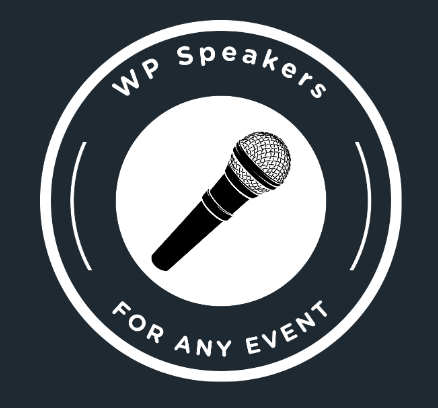Being a Non-Developer in Tech
Episode 3: What is it like being a non-developer in tech?
When we think of tech we often think of coding, software, and engineering. But those roles are just one piece of the tech world. In this episode Allie Nimmons talks to Maddy Osman, Rachel Winchester, and David Yarde about balancing roles, putting ourselves in boxes or applying labels, and more.
Our Panelists
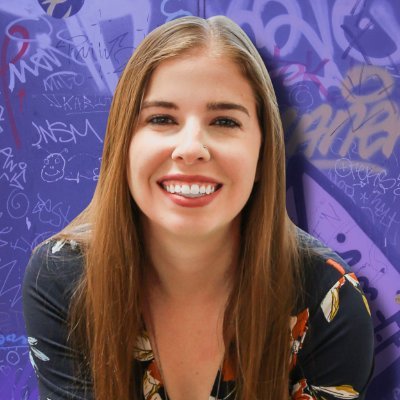
Maddy Osman
Maddy Osman is the bestselling author of “Writing for Humans and Robots: The New Rules of Content Style.” Maddy’s journey from freelance writer to founder and CEO of The Blogsmith yielded numerous insights to share about content creation for enterprise B2B technology brands. Her efforts earned her a spot in Semrush’s and BuzzSumo’s Top 100 Content Marketers and The Write Life’s 100 Best Websites for Writers. The Blogsmith

Rachel Winchester
Rachel Winchester, or Win for short, is an independent product designer, public speaker, and startup founder. Drawing on her art history and interpretation studies at Swarthmore College, Win runs Visual Webmaster L.L.C., a boutique internet art and product design consulting firm. You can catch her on the third Thursday hosting the virtual Philadelphia WordPress Meetup. Visual Webmaster
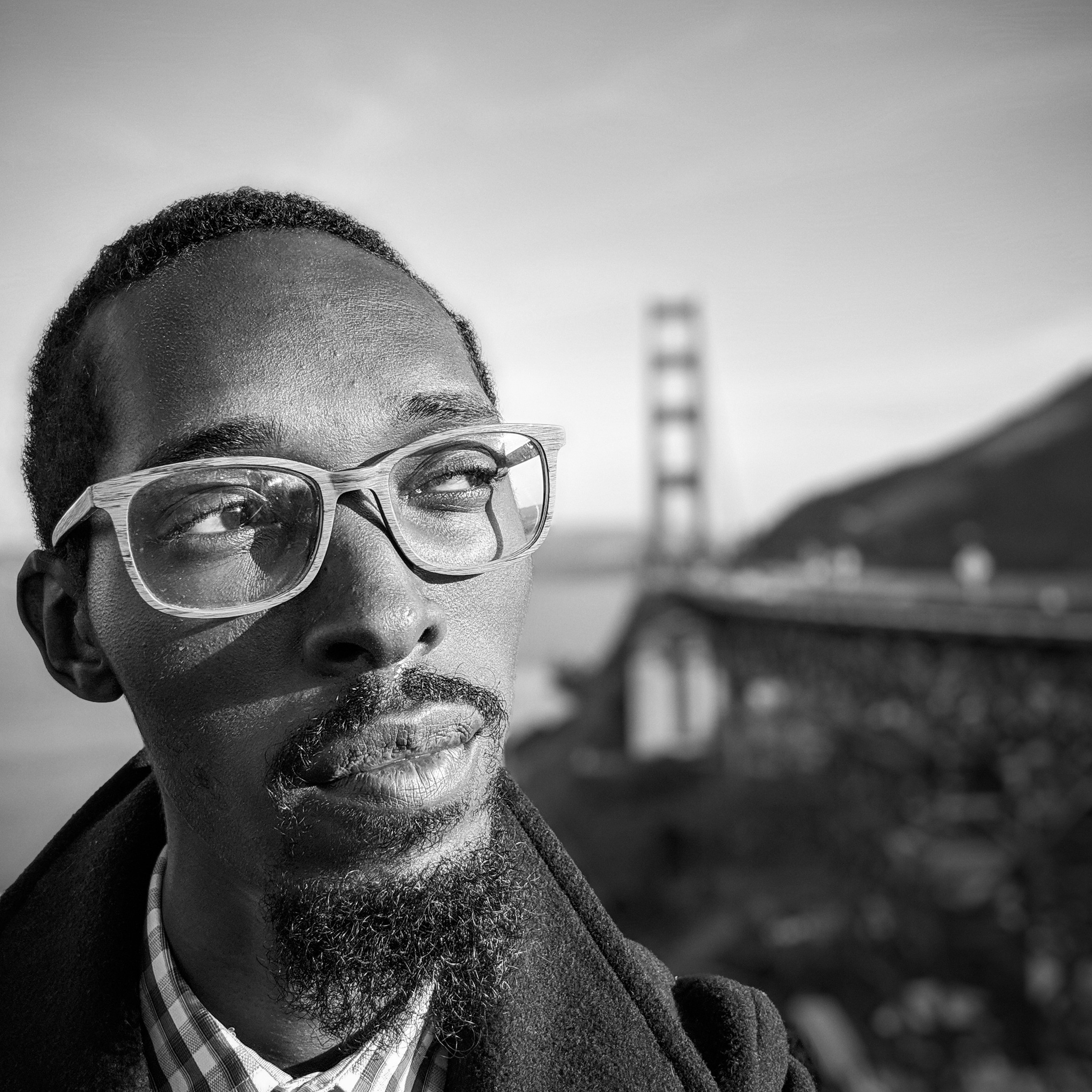
David Yarde
For over two decades, David Yarde has navigated the intricate realms of design, strategy, and technological innovations with a curious and observant mind. As a highly skilled problem solver, David believes that Loveable pursuits mirror the truths we seek in life. They serve as a compass, providing our world with direction and purpose. Website
Episode Transcript
What is it like being a non-developer in tech?
Introduction
Hello and welcome everyone to the third episode of the Inclusive Webinar series, where we’re focusing on shining a light on certain subgroups working in tech where people are often underrepresented. Today we’re talking to three folks, three people that I adore, and I’m very happy to chat with today, who work in tech, who are not developers, not programmers, not coders, at least not in the primary focuses of their professions. So we’re going to talk a little bit about that with these three people today.
Sponsors
Before we dive into our conversation, we do want to thank the sponsors of the series, Crowd Favorite, GoDaddy Pro, Howard Development and Consulting, Paid Memberships Pro, WP Speakers, and Yoast SEO. We could not do any of what we’re doing within this series without those six companies and their support, so we definitely want to make sure to give them a shout-out.
And if you’d like to learn more about any of those companies, you can visit the description at the bottom of the video for more information about them. And you can also go to underrepresentedintech.com/webinars, to get more information about the series, about the sponsors and about our panelists, who I’m going to go ahead and introduce right now. Our three your panelists are Maddy Osman, who is the bestselling author of Writing for Humans and Robots, the New Rules of Content Style, which I still have over on my bookshelf in my other room, and she’s also the founder and CEO of The Blogsmith.
Rachel Winchester is an independent product designer, public speaker and startup founder, and she runs Visual Webmaster LLC. And David Yarde is the founder and a creative problem solver at Lovable Ventures, and his experience lies at the intersection of visual communications and software engineering. And I’m Allie Nimmons, I will be the moderator for today’s webinar. I’m also one of the co-founders of Underrepresented In Tech, which is the brand through which we are building this webinar series. So I’m super excited to talk to all three of you today. And I’m just going to go ahead and dive in with the very first question, and whoever would like to start can go jump in and start.
Question 1: So what do you wish that people knew or understood about what it’s like to be a non-developer or non coder in tech?
Rachel Winchester:
I think it’s, I guess, important to understand the word, “Developer,” because not all websites are necessarily developed using that traditional software development cycle. There’s a lot of website makers, website creators, website builders who are not necessarily website developers. So trying to just understand what the definition of that word is, and understand that it’s not a set definition. Sometimes in conversation with people, I may use the word, “Developer,” because I’m trying to get at their level of understanding, but I don’t brand myself as a developer, because I don’t know computer programming or software engineering, I barely code. So I think that’s what I try to help people understand, what I hope other people understand is that the word is confusing and fluid.
Maddy Osman:
Yeah, I can jump in. I think that one thing that’s interesting to consider, I guess, about the differences between a developer and a non-developer, or coder and a non-coder is that while we live in slightly different worlds, we can build symbiotic relationships. So for example, at my company, The Blogsmith, a lot of clients that we work with are in the tech space, and it’s a matter of taking something like a developer’s really technical release notes about a new product feature, or something like that, but then working together to translate it into something that the end user will understand. So going through the technical language, but then sharing it in a way that’s like, “But this is how it affects you.” So I think it’s great to create relationships between the two parties, because then we can really help each other get both of our jobs done.
David Yarde:
So I want to piggyback off of both of those. I think this is a great chance for a little bit more of the universal language to come into play, two fields come into mind. Teachers, they develop curriculums. None of those people have anything to do with code. Then you also have in construction, the person that’s the land developer, they’re looking at how this thing could be, what it could fulfill, what uses it could have. And then they come in and call in a team of people to do things, whether it’s engineer solutions.
So I think tech is one of those weird things where we’ve gotten on that high horse of like, “Yeah, we’re special. We have this cool language and verbiage, right?” Then you have UX and UI, and you’re like, “They’re kind of the same thing, but not really.” And then you have to get into this weird conversation at the dinner table, like, “What do you do?” And it’s like, “Well …” So I think using more of that universal language of like, “Yeah, it’s similar to a teacher, or this [inaudible 00:05:49]. We’re developing a platform, we’re developing communication, we’re developing minds,” or whatever the case may be.
I think for me, it’s understanding that although it may look simple, it’s more difficult, and you’re going to have to invest the time into it, regardless of what we do. I think that’s kind of the biggest misconception, and I wish more people knew. But that, yeah, although we may not code or we may not do this or that, it still takes time, the mental labor to pull all this together. To translate what you’re saying as well as what 10,000 other people are saying, and then make it into a cohesive experience using your expertise. Yeah, that’s not easy stuff at all.
Allie Nimmons:
That’s all fantastic. That makes so much sense. I love the looking at other, “Developers,” in other professions. Because it’s totally right. Developing is just building, creating, taking something from the ground up, and then its base has nothing really to do with code, but that’s just the name we’ve happened to place on people who code. Which yeah, that’s really fascinating. I’d never particularly thought about the semantics of that, and how significant that is. So for you personally, or in general, but I’m really interested in your individual personal experiences, because I think that’s where so much of the truth comes in at.
Question 2: What is the biggest challenge facing you as a, we’ll say, non-coder, non-programmer right now?
Rachel Winchester:
Well, for me, I tend to, when I work with clients solo, and I’m either designing a site for them, or building the site for them, I try to make sure that that build process is very minimal and manageable. I tend to only build brochure sites, or if there’s any other functionality like a store, make it very known to the client that things could go wrong. Just thinking about the past few years, something like email, setting up email, or setting up a domain, getting something wrong can really mess up their entire business strategy, their entire organizational, how everything’s going. So I try not to bite off more than I can chew.
I’ll attach a domain name, I’ll set up email, leaning on the technical support of whatever host we’re using. But yeah, I definitely try not to bite off more than I can chew in terms of extra softwares, extra plugins, security requirements. I just try to build those simple brochure sites that I know I can do. As far as working with a team, working on a team with developers and people who are more technically inclined, I think that’s the best scenario, because they know, better at troubleshooting, better at understanding all the software integrations and things like that. So I lost track of the original question. Did I answer it?
Allie Nimmons:
Yeah, totally. Just a challenge that’s facing you, and from my interpretation, it sounds like one of those challenges is maintaining expectations with clients-
Rachel Winchester:
Yeah, [inaudible 00:09:27]-
Allie Nimmons:
… of what all you can develop and are happy to develop for them, and then where that development might end in terms of where your skills or your interest in what you’re doing lies, if that’s what I understood properly?
Rachel Winchester:
Mm-hmm.
David Yarde:
I think for me it’s patience, because we absorb so much in terms of information, and it almost comes in like foresight. You’re dealing with clients and you see where they’re going wrong, and you’re trying to correct them, or prune that in the process, and then it just ends up into like, “Yeah, here I am now doing the very thing that I was trying to avoid.” So I think between patience and also, how do I pronounce it? Rachelle? Rachel?
Rachel Winchester:
Rachel.
David Yarde:
Rachel? Yes. Okay. That was a very good point about where does my limitation end. Again, I think I’m on the opposite end of the spectrum, where I know too much. It’s like, “Cool, let’s bring this down for what fits the budget, fits the timeline, fits whatever.” And again, I think it bucks back into that patience where it’s like, “Wow, you want so much, but understand so little. How am I going to get this through to you?” But I’ve found solving that challenge has also been a little bit more inward look at myself, why am I getting frustrated about this? That helps a little bit.
But yeah, definitely patience and the guidance process of getting them from start to finish without all the shiny objects that come along. Friends and family that tell them that, “Oh yeah, this is a good idea for you to do, or you should tell your website guy or girl, whatever to do this.” And I’m like, “I didn’t realize I was working for you.” There’s that distinct moment where you feel it going from a collaboration to them thinking that you are an employee, that you, I guess, in that expectations that you try to manage as well. So yeah, it’s a fun ride.
Maddy Osman:
Yeah, I love the concept of setting limitations and boundaries and expectations. When I first started freelancing, I really thought that the move was to do everything. So I did a little bit of web design, I did social media, I did blog writing, and I realized pretty quickly that I couldn’t be great at all those things. I couldn’t create repeatable processes around those things. When I decided that I wanted to move into more of the agency model, I decided my heart is with content, long-form content specifically, social just has too many moving parts. I was like, “If I just focus on that, become known for that, can create processes around that, then that’s something that we can do really well.” It’s helped me, I think, to set the boundary with clients. They might still come to me and ask for some of those other things, but it’s a matter of saying, “I’m not going to be the best at it, and I really don’t necessarily have somebody who can help you with that, but I can refer you to somebody.”
And it is also a great opportunity, I think, in those cases, if there is something like from building websites or whatever, and there’s a technical aspect that you just don’t feel confident about, it’s so much better to just accept that, and to lean on your network, and be the connector for that. So this is why networking is great. And then David, what you were saying about having semantics, and having a shared language, I think, the other thing that’s really useful is even though we bill ourselves as non-coders or non-devs, it’s nice to have enough information, enough of a background to be dangerous. Where I’m not going to be able to go in and fix the PHP problem in WordPress, but I know what it is and the basic structure, the very basics of how it works. So that at least if I’m writing an article about it, for example, or somebody on my team is, we have the right language to discuss it, and to collaborate with somebody who does know what they’re talking about, and again, be able to translate that.
I think in overcoming these challenges, we do have a lot of tools these days, like ChatGPT is one, just like, “What does this code snippet mean?” Or, “This is a problem that I’m experiencing on my website, what could be the cause of that?” So that’s one great resource. Then it’s also maybe just taking some courses about the basics of different types of coding and website design. I know Allie has several on LinkedIn Learning, so that’s a great resource. And that’s just one place that you can go besides ChatGPT, or other courses out there. There’s a lot of resources. So it’s just a matter of spending the time, really.
Allie Nimmons:
Yeah, that’s fantastic. I mean, a couple of things that all three of you have said make me curious about. So when I started using WordPress, I was in a very similar position to what you said, Maddy, where it’s like, “I’m going to do everything. I’m going to be a full-service, full-solution, so my clients only ever need me,” right? And primarily I was designing websites, and then using themes, page builders to, this was before Blocks and Gutenberg and everything, using themes and page builders to in my mind, develop the website, bring it from nothing to something that worked. So I did have to set a lot of those expectations like you talked about Rachel, of like, “Yes, I can do X, Y, Z sorts of things. If you want a completely custom solution, that’s not going to be possible, but we can act within the limitations of this theme that we’ve chosen.”
I do remember oftentimes feeling a lot of self-doubt and a lot of imposter syndrome, calling myself a, “Developer,” or a, “Web developer,” having that on my website or on my business cards, when I felt like, or I knew, that I wasn’t a programmer. I knew enough HTML and CSS to be able to solve some problems, but I couldn’t build you something from scratch. I remember hearing people not even directly speaking to me, but saying things like, “People who build with page builders are not developers.” And it made me feel awful, and I wonder if … David is like, “I take issue with that.” I wonder if the three of you, any of you have experienced that level of imposter syndrome or doubt of saying, “Well, maybe I should learn PHP? Maybe I should start offering all of these other services to be able to keep up or be more competitive or really be able to call myself a, ‘Developer’?”
Do you ever feel any of that internal struggle of working in tech and building these sorts of solutions without offering the code side of things that I think a lot of our customers clients expect? That we’re computer people, so we should be able to snap a finger and build a custom solution. Has that become apparent to any of y’all throughout your careers?
David Yarde:
I’m going first simply because I need to apologize. I’ve been one of those people that have said that. But here’s the context for why I said that. And this goes back to the analogy that I used earlier. There was a point in time where people were just throwing things together as the theme came, so you come get it. Any wise person that has progressed over a course of a career, especially if you have that self-doubt based on someone saying that, it can be one of two reasons, right? One, they’re seeing that from the perspective of where they’ve been. Or two, you’re probably doing those actions that don’t qualify for this to be fully developed.
It’s like baking cookie dough. Here’s a good example. You get the cookie dough home from the store and you just throw it in the oven, you got a cookie, but it’s not quite what happened over here. You’re going for the experience of being able to dunk the cookie or bond with your child, or eat maybe little cookies for the office party that you really didn’t want to do, but here we are. Whatever your reason is. So going back, I would say removing that self-doubt would start with, “All right, when I go into this situation, do I have a plan? Do I have escalation strategy, a deescalation strategy? Do I understand my boundaries? Do I know where I want to take them? Do I know what I need to do personally to get them there? Where I’m going to say no, where I’ll give in,” et cetera.
If you know those, or you answer any number of those questions with a solid yes, then yeah, you’re a developer by all means, right? You’re developing experience, or developing a relationship. You’re helping them develop a part of their business. Now, in terms of engineering of the solution, that’s a different story. What level of skillset is required to engineer the solution?
I think my biggest self-doubt has been more on the business side of things, where it’s like, “Yeah, we could be ridiculously good at this thing. I know I’m really good at it when I’m doing my personal projects. We all have this feeling, but then when I’m going over here, why is it that I’m probably not charging enough? Or doing this more creatively?” Or whatever. Those are a lot of things I definitely experienced earlier on in my career. I think my self-doubt now originates from, “Will I be able to hold back and not obliterate something?” Because I have a lot of stuff I really want to get done, and I have no time to waste in getting them done. So I think that’s more of, I think, the shift that happens along your career. But yeah, I do apologize to anyone that may have felt that way, but yeah, understand the context always has two sides.
Maddy Osman:
Yeah, I mean, I think Allie, you bring up a good point, which is just that, yeah, it’s like I almost don’t know what to call myself. Back when I did more website projects, “Developer,” wasn’t quite right, “Designer,” wasn’t quite right either. And I think a term that I’ve heard thrown around that I connect with is, “Builder.” It’s like I can connect these different teams and plugins and I can customize them so that it’s not just using it out of box, and I can apply the things that I know about marketing and just optimizing in general.
But yeah, I mean, I think my first actual paid website job, I think my title was, “Website designer,” or something like that. It sort of fit, it sort of didn’t. I called myself a developer at some points, but again, it’s really with the understanding that I could not go that deep into the backend code. I couldn’t do any sort of super advanced customizations or troubleshooting. I think maybe that’s where the biggest imposter syndrome comes from, is the troubleshooting itself. Because I can build something in the perfect scenario that works, because I just happen to know all the things that are going to work for that very specific thing. But then you have one conflict, and it throws everything off. Then that’s kind of where I’m like, “Well, maybe I’m not a developer, because I don’t know what to do, and I need to seek help.”
Rachel Winchester:
Yeah, interesting. I’ve always found these titles to be interesting, but also arbitrary. It’s funny that you mentioned imposter syndrome, because imposter syndrome was a really big thing on my campus at college. So I feel like I confronted that idea early on. I went to a college that was known for being very rigorous. So my entire time there, there was chatter around who was the admissions’ mistake, who got in here and shouldn’t have gotten here? So imposter syndrome at Swarthmore College was a big thing. I never really fully understood why imposter syndrome was a big thing, because I’m just like, “We’re all learning to be the thing that we want to be. We chose our major, we chose this career title or something. So we’re in the process of becoming that. So whatever, we’re all here, who knows what happened in the admissions office, whatever.”
Then I guess in 2016 with the presidential election, I really started to see these titles, the places that people have earned to get to, and the places that people think they deserve to be are really just arbitrary. So the titles are whatever. Also I had a friend, I had a friend who is a classmate, and he would always wear this shirt, “Swarthmore Grandma.” He was like, obviously not a grandma. I don’t know. It was just having fun with titles. I studied art history, and I really loved conceptual art and contemporary art. So postmodernism, Dada, really just having fun with what is real, who knows? So hopefully if you guys are still experiencing some imposter syndrome, hopefully that helps, [inaudible 00:24:20]
Allie Nimmons:
I love that approach. None of it matters, just do the work.
David Yarde:
Can I tag, [inaudible 00:24:23]-
Rachel Winchester:
The titles are as you define them and as you explain them. But yeah-
David Yarde:
And, [inaudible 00:24:31]-
Rachel Winchester:
I took a web design bootcamp, a UX design bootcamp at the beginning of the pandemic, and one of the lessons, one of the weeks, we had to focus on what part of UX are we specifically interested in as students, what title should we try and apply for, or put on a resume? Anything from UX engineer to UI designer, or product designer, UX strategist, UX researcher, all those things. So in that week, that’s when I very consciously chose the title Product Designer. I liked how it had that entrepreneurial feel. Like you create the whole product, but a Product Designer isn’t necessarily the CEO or the owner or the entrepreneur. A product designer, they can create the product or they can create the product within a brand. It’s a bit however you define it again.
Allie Nimmons:
Yeah.
David Yarde:
[Inaudible 00:25:33].
Rachel Winchester:
Then product design is also a umbrella-ish term. It’s a more broad term. So I feel like people could come to me for interface design, or UX research, or, mock-ups, wireframes. Yeah, so I chose product design because it’s both big and all-encompassing in terms of business strategy, but it also covers a lot of the smaller design titles that I think a lot of people are more aware of, or interested in.
Allie Nimmons:
Okay. David, you were going to jump in with something.
David Yarde:
There were three things that I remembered, and then I only remember one of them. So because the Product Designer is so cool, it reminded me of a general manager in a company, the GM, that he shows up, he knows everything, but he knows that that’s not his job. And he knows who you need to go to, to get that job done. Oh, now I remember the other two. So I have a question, on the titles part, when you’re going through school and you realize that everything was just pretty much arbitrary, did you also get the sense that a lot of the things that we do, especially as designers, are just self-assigned, to get to work on that cool project, to get into that networking thing?
Yeah, I’ve had that question. Then the third one was I think the roles that we are assigned when we’re younger, what is important, what isn’t, also play into the roles that we try to portray or say that we necessarily have. But again, back to your point, it’s all arbitrary, because those roles are for a system built on industrialism. Creativity is, what we’re doing is the minute version of what we are as creatives on a day-to-day basis. This may be our strongest expression of it in terms of interfacing with other people, but like you said, you have the photography interest, you have the writing interest, you have this, you have that.
I don’t feel like creatives of old, especially when you look at Mozart and all those other guys, that they had one thing, they were always known for a bag of stuff. Everybody, didn’t matter your gender. It was just like, “You like this? All right, cool. Come over here. We got this society for you. You want to do this? You live in what side of the world? All right, cool. There’s a ferry that [inaudible 00:28:24] our people. We’re going to use this and go halfway around the world.”
I think creatives were a lot of the initial peacekeeping and communicative force of humanity. We taught people things, we taught people about themselves. And then somewhere we created that for, I think, [inaudible 00:28:46], survival. How do we survive in this new age of industrialism? But yeah, that was a really good point. Our roles really are arbitrary. Whatever you show up to do, and get the job done, that should be your thought. Yeah.
Allie Nimmons:
I mean, I think in a lot of ways, titles, so many different titles are arbitrary. We talk about the spectrum of sexuality, and we have all of these names for things, but if it is true that it’s all just a spectrum, then these names are inconsequential. But it helps us to connect with each other and to say, “Oh, well, you identify this way. I also identify this way,” AND create that sense of community. Same thing I’ve read a lot about mental health, is popping names or labels on peoples, like, “You’re diagnosed with X,” helps us to treat the problem. But a lot of the mental health issues that we deal with today are different flavors of all of the same thing. So it’s interesting how frequently we, I think just as humans, insist on putting these labels on ourselves and on each other. When what really matters, like you said, David, is the work that we’re doing, or the work that we’re interested in doing.
So I think having this almost delineation in tech between the creatives, the people in this room, and the more numbers or technical-centric people who are the developers and the engineers and so on, I wonder consistently whether that’s helpful or hurtful to put us in these camps of the creatives and the non creatives, the engineers and the non-engineers. Because creativity requires engineering, and engineering requires creativity. But I think maybe even sometimes, just for the sake of selling ourselves to our clients, we have to put these names on things to communicate what it is that we have to do. We could do a whole webinar on just naming things, labeling each other, and how that affects us, because I think that’s super interesting.
Rachel Winchester:
In my UX design bootcamp, I was assigned a mentor. And my mentor, she was a senior level product designer, but she had, I guess, her previous career was as a software engineer. So she was a really awesome designer because of her background in engineering. But then she was also very excited to be working with someone who had a knowledge in art, and the more creative-type side of the, more artistic-side of the creative spectrum. So I feel like we really vibed well together because we had the skills that we wanted. But it was definitely what I understood from working with her, it’s not so much about the title and what you’re calling yourself. It’s not like this title is going to be written on your gravestone. It’s just about the work that you are choosing to do at the moment. So she was employed as a designer at the moment. If she wanted to, she can go back to being a developer. If she wanted to, she can go be a waitress at the restaurant at [inaudible 00:32:18]-
Allie Nimmons:
They’re not intrinsic things to who we are.
Rachel Winchester:
Yeah, so I try to think sometimes I’m an event planner, sometimes I’m developer, sometimes I’m a designer. But yeah, it’s all about understanding the type of work that’s being done.
Allie Nimmons:
Yeah, absolutely. I want to move on to our next question now. We have about 15 minutes left. I’ve definitely chatted with some people, particularly I’m going to focus this a little bit on the WordPress community, because I know all three of you are parts of that community in some way, shape, or form, at least. I’ve heard people talk about, particularly in WordPress, wanting, needing to hear from more non-programmers, non-coders, non-developers, building up those make teams that are not focused on code. Having more WordCamp talks that are not focused on programming. What kind of changes would y’all like to see either right now or in the long-term within the WordPress community, or in tech in general, what kind of changes would you like to see to give more support and more focus to non-programmers in, “Tech?” Which we tend to think of as programming, to a lot of people, the tech world and the programming world are one and the same.
Question 3: So what kind of changes would y’all like to see to these communities that would support the things that we’ve been talking about so far?
Maddy Osman:
Well, one, I don’t know if this is an exact answer. But one thing that I thought was really cool, not about, I didn’t attend this last WordCamp US, but the one before that, that was my first contributor day. And one of the things that I helped with, was basically user testing the messaging around if a plugin fails to update, and so what the end user sees, and what do we anticipate, how they would react to that? Do they know what to do next? Is it clear that the update failed, and what action they can take to retry it or whatever. So I think it’s the non-programmers or whatever are the ideal user testers for that situation, because it’s more of the developer people who are putting together the solutions, and then coming up with the messaging that they find appropriate, even just to test it, or whatever.
But it really needs to be finished off with somebody who is a non-technical user, because especially in the WordPress world, there are so many non-techie people who choose WordPress for that reason. Who are users in general, or small business owners, who just, they don’t have time to understand all the ins and outs of the language. Even what is a plugin, something like that. The more that we can, I guess, support developers with, I guess, user testing, or giving them other resources from more of that creative non-coder side, I think, the better received their developments will be.
Allie Nimmons:
That’s a fantastic point. I mean, unless you are building something that is specifically targeted toward other developers, chances are the people who are using the thing that you’re developing are not developers. So that’s something to keep in mind that if you’re a developer working on something independently, bringing in somebody with a different perspective to test that thing is incredibly important. That makes so much sense.
David Yarde:
Coming back to it, use it for a blooper reel. The [inaudible 00:36:07] point of inviting more people who are non-developers into the conversation. I would say this is where I probably got into about 90% of my fights as a person when I was doing corporate. I think this is where I realized that user experience was amazing for me, where at the time, I got to advocate for the user. And that meant bringing the user into the room. I don’t think a lot of WordPress companies really are exposed to that level of technical development, which is very huge in being able to mature the overall life cycle of the WordPress space, what’s possible, salary caps, et cetera. More people in the conversation.
I say WordPress came off as an open source [inaudible 00:37:08], just for a very specialized group of people, who hated Joomla, who didn’t want to use Drupal, who was tired of writing their own PHP thing, using [inaudible 00:37:20], using Xanga, Live Journal, whatever it was. And they all just converged on the space. Then here we are now. So now it’s maturing into something more, or really showing what it has always been, what the people who’ve stuck with it throughout the years has always known it to be. I think it’s changed that, like you said, we invite more people who aren’t technical into the thing, see how they use it, see how they break it.
That was always my favorite part of working for a large company is, one, I could just hide away on a team and not get bothered and do my work. Two, it was that user testing phase, just the, one, see how much they were charging people to come in and give up their free time. I was like, “Wow, you only got the client to pay for this, and you all got them to do this for what?” So that was the first thing that was fascinating to me. Then the other part was just watching how people use things and you’re like, “Oh my goodness, how did you … No, that’s definite. You could use it that way?”
And then you’re going back through the user requirements, and it’s like, “How is that possible? We did what?” So when you present those cases and they’re like, “Yeah, it’s not working,” and you have to present feedback and you show them how, they’re like, “Yeah, it wasn’t designed that way.” I was like, “Well, no, that’s the way it was developed. That’s the way it’s being used.” So the verbiage always comes back. Anytime someone’s getting into a [inaudible 00:39:01] war, like, “Yeah, developers are better designers.” One pipe down. There’s some of us that could do both, but we’re choosing other routes in life. And two, for those that aren’t, it doesn’t really matter. We’re both trying to work on the same end goal of making a solution where people can consistently feel pleasant to go through. You can tell I get into a lot of fights. I don’t call them, “Fights,” I call them [inaudible 00:39:29]-
Allie Nimmons:
Spirited conversations?
David Yarde:
Yes, it’s part of the creative collaborative process. It’s very stubborn about it. But yeah, that point there, WordPress has a lot of growing up to do. Allie, you’re definitely going to get me in trouble with this question. But yeah, I think that was also the question that I got up and asked Matt for last WordCamp, not the one this year, but the one last year in San Diego, “How do we have more people, if we’re talking about a diverse space, how do we have more people who aren’t technical into this space?” Will say, I feel like that question has been taken to heart.
I had a lot of awkward moments where grown men came up literally crying, and I was like, “I’m too far on the spectrum to really know what to do with this information that’s happening right now.” But I am glad that people feel strongly enough about it in hindsight to be that vulnerable with you and be like, “I’m glad someone said something.” So I think we need more people who are willing to speak up, throw up, help out. Yeah, it needs more of, but yeah, we can say it needs more of, or we could just be the more of, if that makes sense?
Rachel Winchester:
I think I have two answers. I think first I’d say we should maybe have more talks about how to … Or maybe I have three answers. So we should definitely have talks about how to assemble a team, or how to work with developers and specialists. So if, let’s say, you know Elementor very well, but this client really wants to work with you, but they want to build a store, how do you find either a Shopify specialist, a WooCommerce specialist? How do you find that person and figure out a working relationship so that you can do it correctly and everything remains manageable? So yeah, maybe more content in that direction.
Also, I spent about a year at a company where part of my tasks was monitoring Intercom for our hosting platform. So Intercom is a little chat box that you see in the corner of a website or a dashboard, where you can say, “Hey, I’ve got an issue here, can you help me with it?” So that was my job. The reason that they assigned that job to me was because, I guess, I have experience with customer service and the service industry. Their goal with assigning me to customer support was to let their customers know that they’re heard, and that they’re being listened to.
I wasn’t necessarily able to solve the technical problems. In fact, most of my job was moving tickets to someone else. But yeah, I learned that when I was conversing with whoever was on the other end, how they were talking to me would really affect the timeline of how their issue is being troubleshooted. So maybe we could create some more talks and some content around how to troubleshoot, how to deal with technical problems, when to contact a plugin developer. Is the plugin developer able to be contacted? And maybe you shouldn’t use that plugin then. When to go to a Facebook group and ask questions there. So yeah, so maybe content about how to use those platforms that you don’t necessarily know how to use.
Allie Nimmons:
Absolutely.
Rachel Winchester:
And then I think I have one last answer. WordPress democratizes publishing, and we’ve got a lot of bloggers in this space. And I think maybe more attention to content creation and blogging and storytelling. I think if we have more writers and photographers and bloggers and those kind of people in the ecosystem, we’ll all have to listen to each other better. So developers will listen to how content creators are doing their thing, and content creators can listen to how developers and designers are doing their things. So we can, because we’re all on the same supply chain, we’re all trying to create great web experiences. So we all need to learn to work together. So maybe more about how to write the perfect blog post.
Allie Nimmons:
I love that. And that is exactly why, I mean, to bring it all full circle, that is exactly why we wanted to have a panel with people like you. You are all three of you storytellers and artists in your own ways. And building that thought-process into the fabric of a community like WordPress is incredibly important. I mean, to David’s point, I did want to shout out that, and lots of other people have been caring loudly at leadership about making it easier for non-engineers to contribute to WordPress. And fairly recently, if you go to makewordpress.org/contribute, there is a new system, a little survey essentially, that you can fill out, that helps you find a team for you, that asks you about your interests and your skills, most of which are not code-focused. Which I think is a fantastic step forward in just making that process easier and not encouraging people to assume that, “Well, I don’t code, so I can’t contribute to an open source project,” which I think was the perception for a very long time.
Closing Thoughts
So while I could continue to talk to all three of you for the entire rest of the day, we’re not going to do that today. We’re going to have to cut things off here. But I want to give a huge, huge thank you to the three of you, Maddy Osman, Rachel Winchester, and David Yarde for giving us your time and your amazing thoughts this afternoon. I want to go ahead quickly and thank our sponsors again, Crowd Favorite, GoDaddy Pro, Howard Development And Consulting, Paid Memberships Pro WP Speakers, and Yoast SEO for making this event possible.
If you’d like a transcript of this conversation that we had today, more info on the sponsors, more info on the speakers, and more info on the event itself, you can go to underrepresentedintech.com/webinars to get all of that information. And join us for the next webinar, where we will be speaking to a group of queer people who work in tech and learning about their experiences, their thoughts, their procedures, all of those wonderful things. So thank you so much again to our speakers, our sponsors, and to all of you at home for listening and watching. And we’ll see you next time.
Webinar Production Team
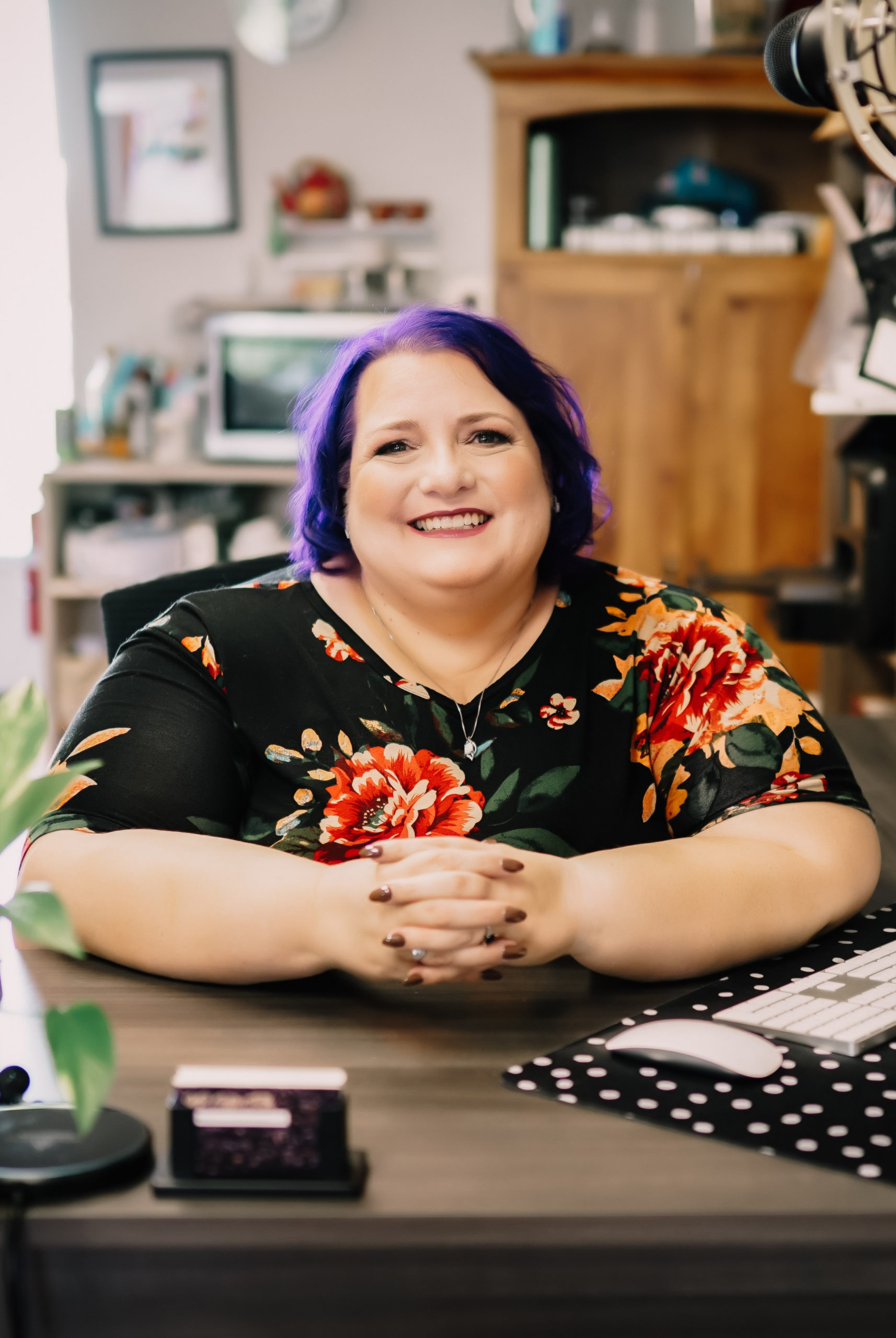
Michelle Frechette
Panelist and sponsorship organizer, moderator, and producer
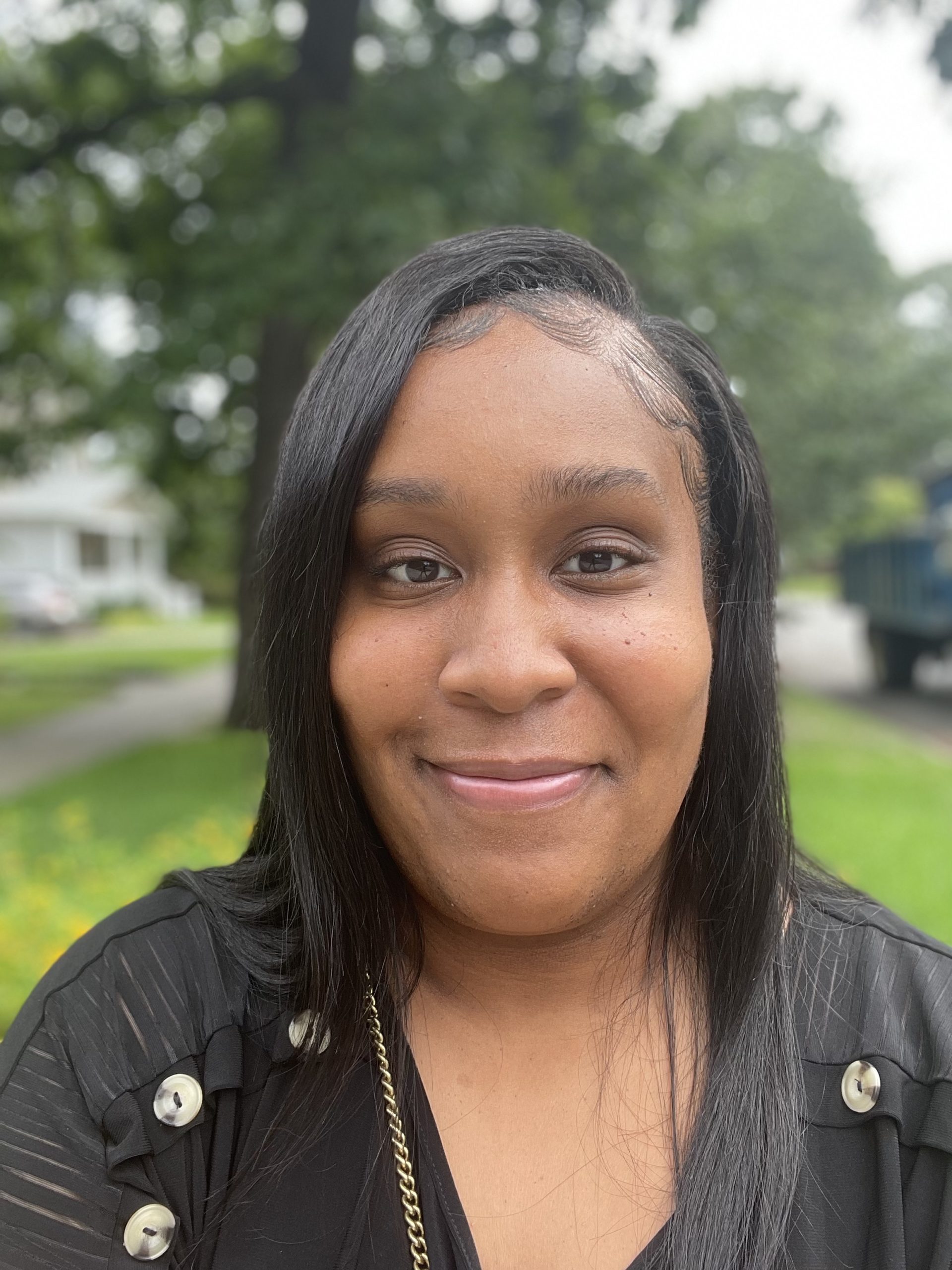
Nyasha Green
Moderator and social media manager.
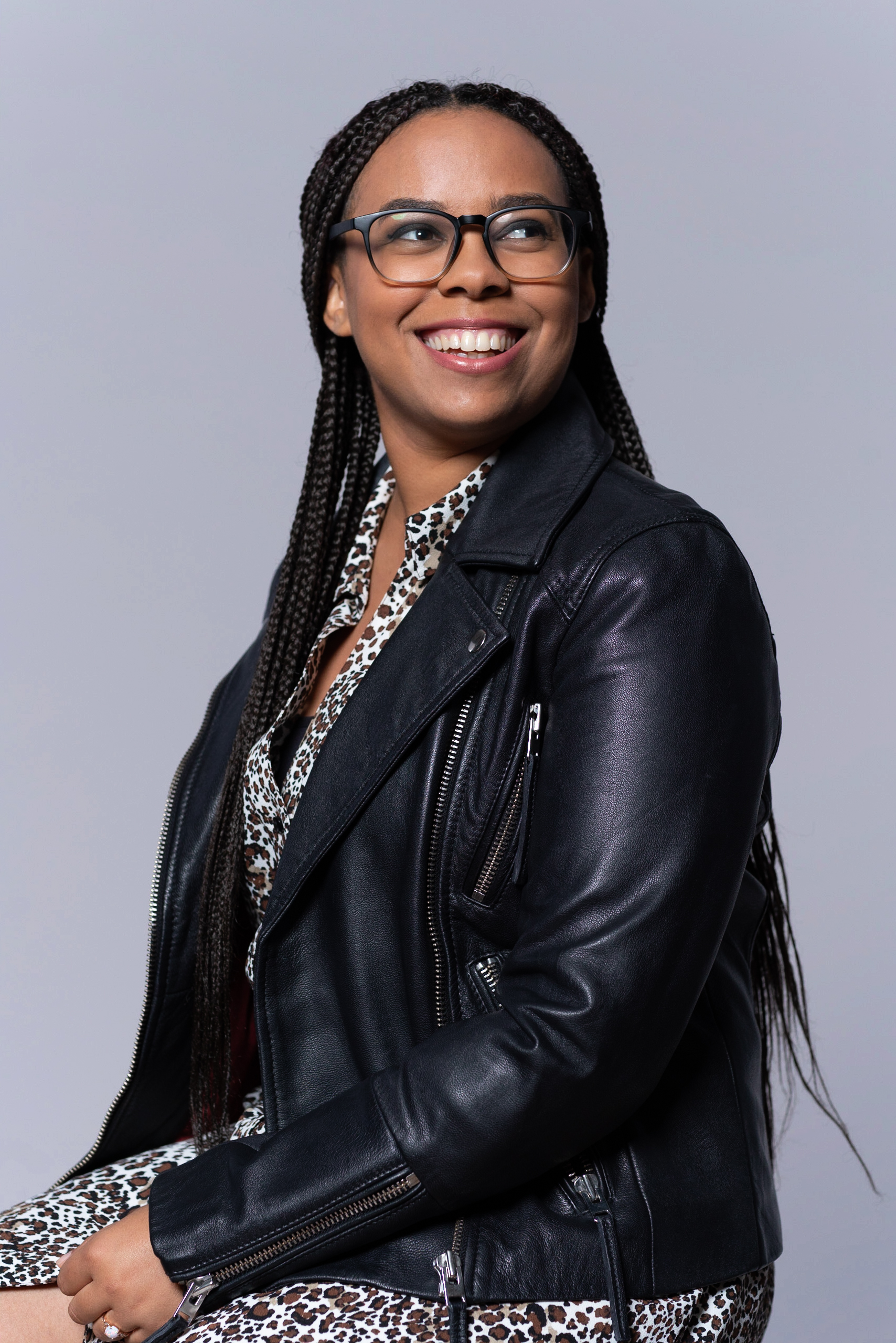
Allie Nimmons
Moderator, designer, editor and producer
Learn More About Underrepresented in Tech
Database
Use our database to connect with underrepresented folks to work with, or add yourself to find work and opportunities.
Podcast
Our weekly podcast discusses topics relating to underreprented people working in tech, as well as tips and advice for allies.
Newsletter
Our monthly newsletter contains news, updates, links, and more targeted toward the success of underrepresented people working in tech.
Our Services
Become a better ally. Pick our brains, or get help making your social media presence or your recruiting process more optimized for DEIB.

